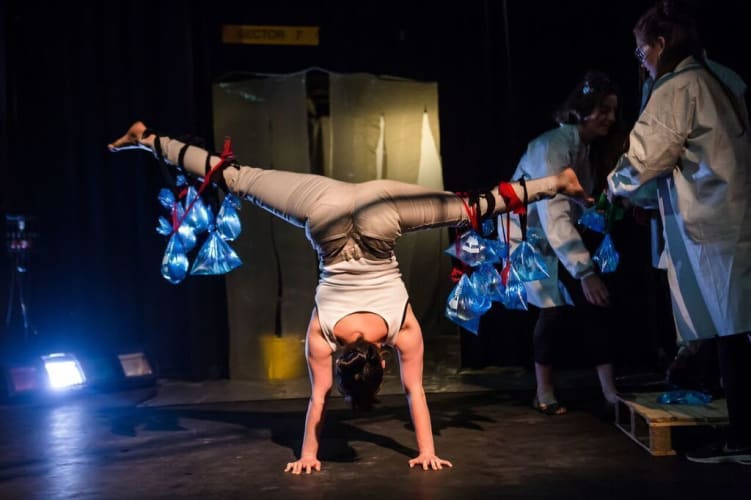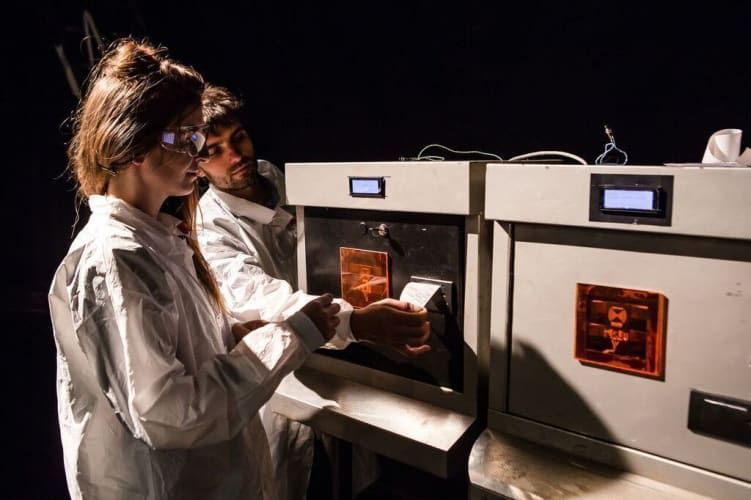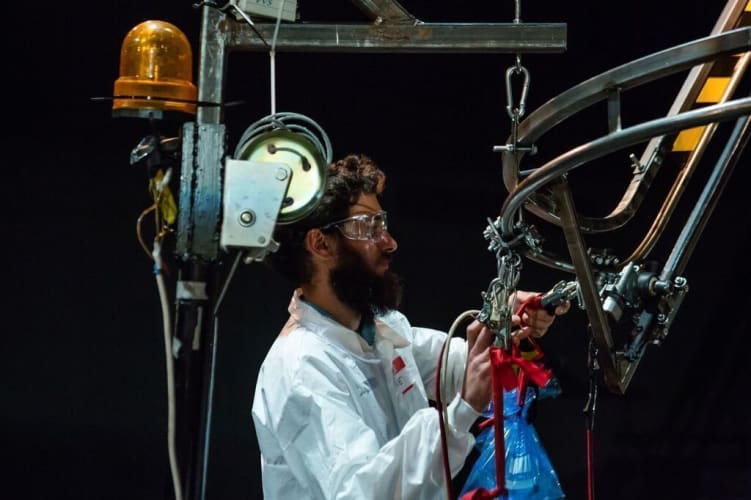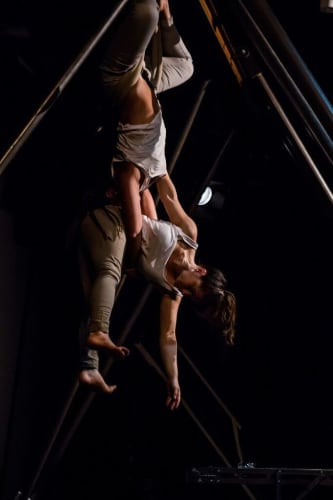Collectif and then… won this year’s Oxford Samuel Beckett Theatre Trust Award (OSBTTA) which supports emerging practitioners in the field of experimental theatre, the winner creating work for the Barbican, the Pit or a site-responsive performance in the City or East London.
The result is an interactive performance created in collaboration with the Serbian collective Karkatag who design machines and interactive installations. Its audience participants are kitted out with white overall and protective glasses, assigned a number, name badged (but not with the name you’ve told them) and issued with a security pass before being admitted to the performance space.
Clocking in electronically, fellow factory workers, each gets a chit assigning them to a particular work area and job. Work areas are numbered, wooden pallets lie between conveyer belts, metal poles support overhead ways, hooks hang from above and there are some strange looking machines: one looks like a cross between a doner kebab spit and a stamping press.
Some fill bags with sand, some blow air into bags, others load up pallets, or pedal away to provide the power to keep the conveyor belts moving. All the time the Tannoy or a forewoman (they are all called Dave) is issuing instructions: Pedal forwards! Pedal backwards! John work harder! Sometimes just to jump up and down. At one point, everyone is ordered take part in an exercise routine that gets exhilaratingly faster. A forewoman may check your effort and responses by doing a handstand on your conveyor or straddle two going in different directions.
There are reminders of rewards for hard work (I got a tiny lolly!) There is even some encouragement: Congratulations, task completed on time.
There’s a work break: orange juice and biscuits and a little entertainment. A tilted tin showers a couple of girls with glitter. They are un-overalled, not workers, and perform some acrobatic manoeuvres suspended from a gantry. There is even a touch of humour with a hanging body covered in blown-up bags held in strange ways.
A star Stakhanovite worker makes a speech extolling the work ethic and the interaction between acrobats and others develops. Loading a pallet raises a woman by her hair. Hanging water filled bags to one leg or the other challenges the equilibrium of a long-held handstand.
Mostly it seems pretty pointless, not rating much as entertainment, though there’s an element of childish fun in pretending and actions do seem timed to stop just when they are beginning to seem exhausting or frustrating: it’s been carefully plotted and perhaps it opens eyes in some ways.
I found myself reminded of the tedious pointlessness of military training tasks, painting and repainting pebbles along a pathway, endless drill exercises: the way we condition humans to thoughtlessly respond to orders, train them to do things that are inhuman. For those who have never done it, there’s a taste of being on the factory floor, the tedium of repetitive operations.
It also, very effectively, shows circus skills in a new light. Deprived of the glamour and glitter of its usual performance (one small shower of gold excepted), you see the hard work and effort it costs these acrobats, appreciate the graft behind that usually dazzling showmanship.
Lowered at last from her hair-held suspension, one performer tells how “the first seconds are unbearable on the scalp, you think it is impossible.” Later, as the workers gather at the end of shift with their supervisors (Aleksandar Popovic, Ana Dimitrijevic and Marko Dimitrijevic), the acrobats (Lucie N’Duhirahe, Francesca Hyde and Natalie Reckert) continue. One turns endless backward somersaults through a column of falling sand, another goes on attempting handstands although they keep collapsing.
Here too is repetition and working on automatic: the body become machine, a machine that can break down too.



